The ecumenical journey toward a joint vison for Europe continues. RCH representatives joined the workshop on the invitation of Church of Sweden that brought together 70 representatives from various churches, ecumenical organisations, religious communities and civil organisations from across Europe in Malmö between 27 and 30 January.
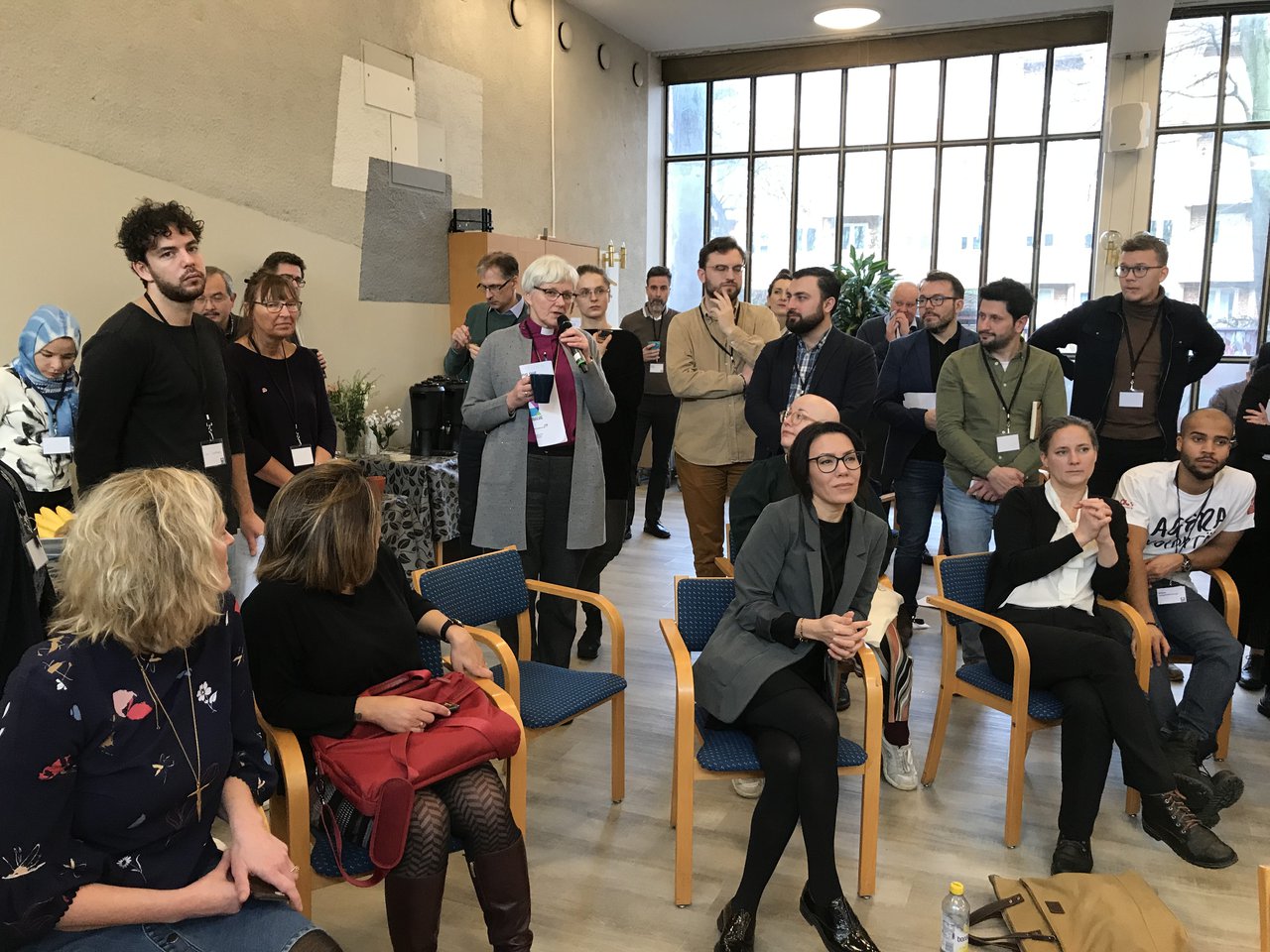
To further the vision for peaceful coexistence and social sustainability in Europe, Antje Jackelen, Archbishop of the Church of Sweden called together a cross-section of society to discover a shared vision for guidance, advocacy and collaboration for the future within the project pf “A World of Neighbours”. Under the title “Keeping our Humanity, for we were strangers once” 70 representatives of various churches, ecumenical organisations, religious communities and civil organisations from across Europe gathered in Malmö between 27 and 30 January.
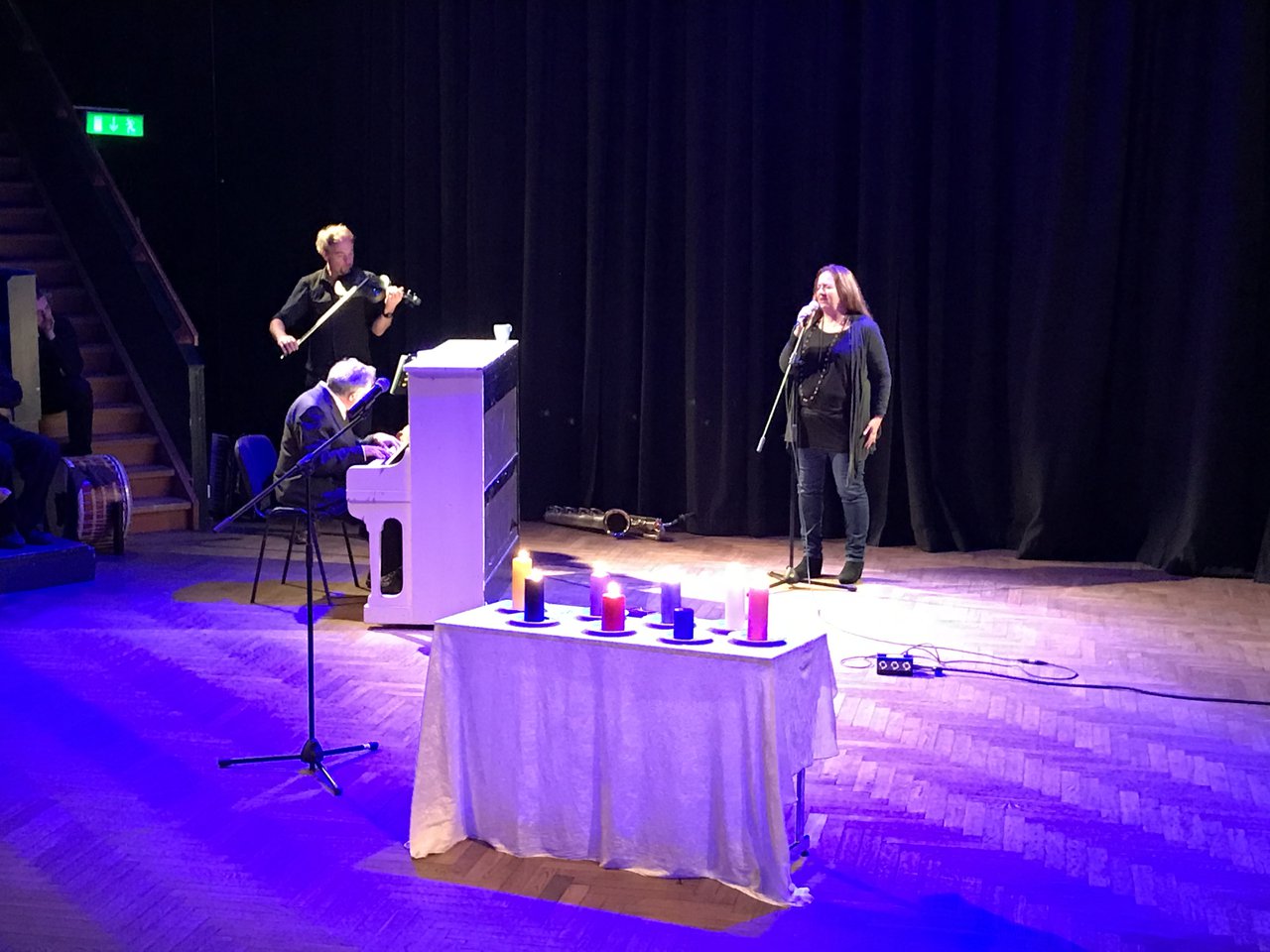
The programme “A World of Neighbours – interfaith practices for peace” is an initiative of the Church of Sweden which aims to contribute to peaceful coexistence and a humane and socially sustainable Europe that defends basic democratic values. An inclusive society – a world of neighbours, both in terms of the biblical sense of the word and its “secular” meaning. Its objective has been to create a network of people and faith-based actors working with and for refugees and migrants in every corner of Europe. The programme aims also at strengthening interreligious relations between faith-based actors.

The initiative seeks to make the work among refugees in the different countries more connected and visible. Furthermore, the programme enhances opportunities for the interreligious community to voice more strongly its ethical, moral and humanitarian concern for refugees in Europe, in the public discourse. Since spring 2018, more than 150 site visits in eleven countries has been conducted across Europe, including Hungary, to study how communities and faith-based organisations work on refugee and migration issues. Drawing on the learnings from the visits, seven areas important in connection to welcoming people on the move and to promote coexistence have emerged. So far, five working groups our of seven have met to work on a specific topic.
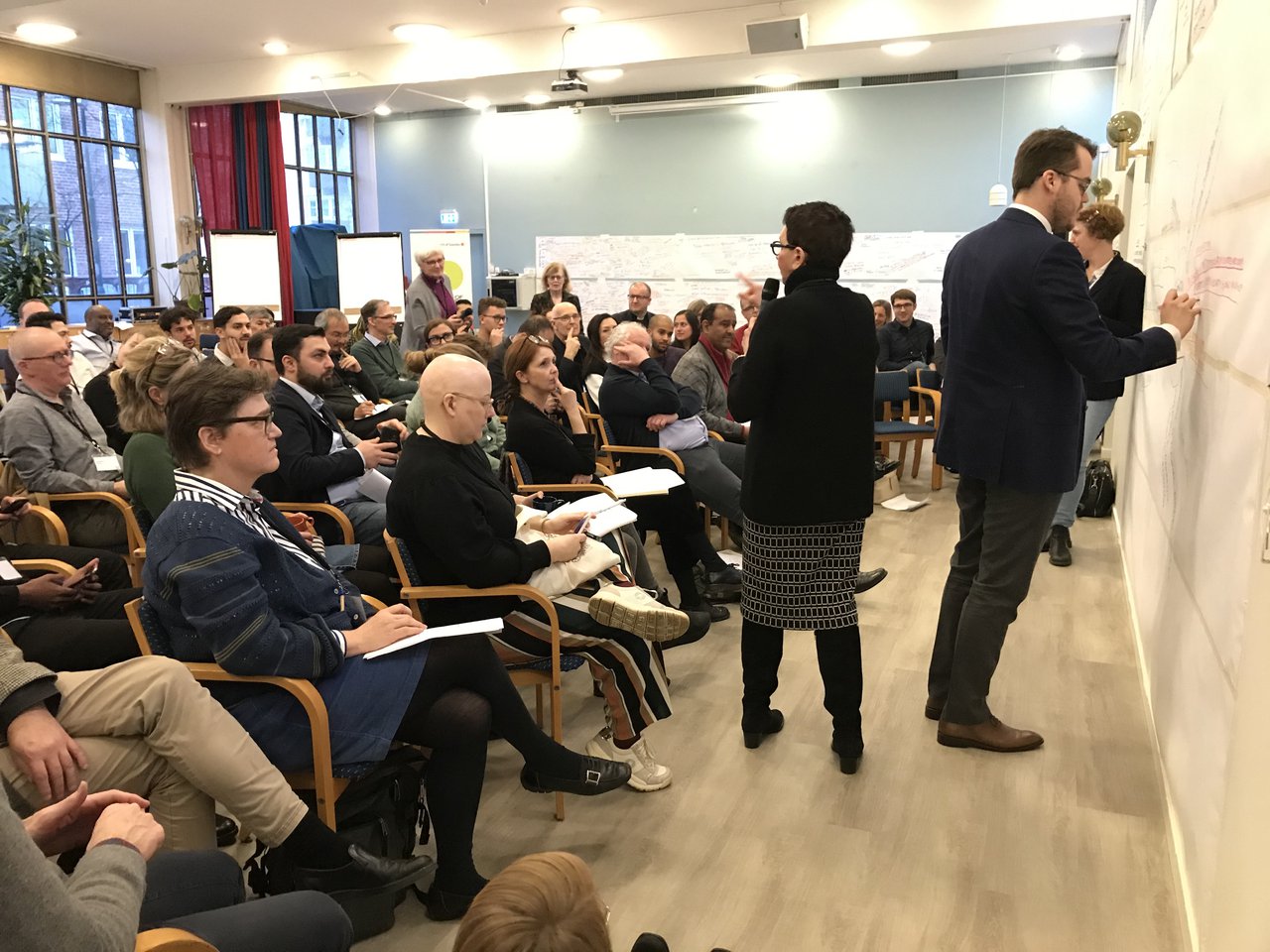
The gathering in Malmö, hosted by the Archbishop Anjte Jackelén, called together some 70 participants, all who have an urgent stake in one of the most pressing tasks of our time – the reception and accompaniment of ‘people on the move’ in an inclusive society. All participants were necessitated to become “stakeholders” in the future search and were actively involved in every aspect of the meeting. Sharing experience, convictions and insights shaped the discussions in groups and in plenary. Careful listening, creativity, mutual trust and accountability, sharing leadership and responsibility made the meeting unique and guaranteed that the outcome was not pre-determined.
Participants from very different ecclesiastical, religious, social and political background formulated priorities and those principles which shall serve as common ground in the future work of stakeholders. Stakeholders are practitioners with receiving communities and grassroots organisations; refugees and migrants in transit and established in a new homeland; actors from religious and civil society NGOs; representatives of governmental and inter-governmental bodies; politicians and policy makers; media and communications professionals; youth; and religious leaders.
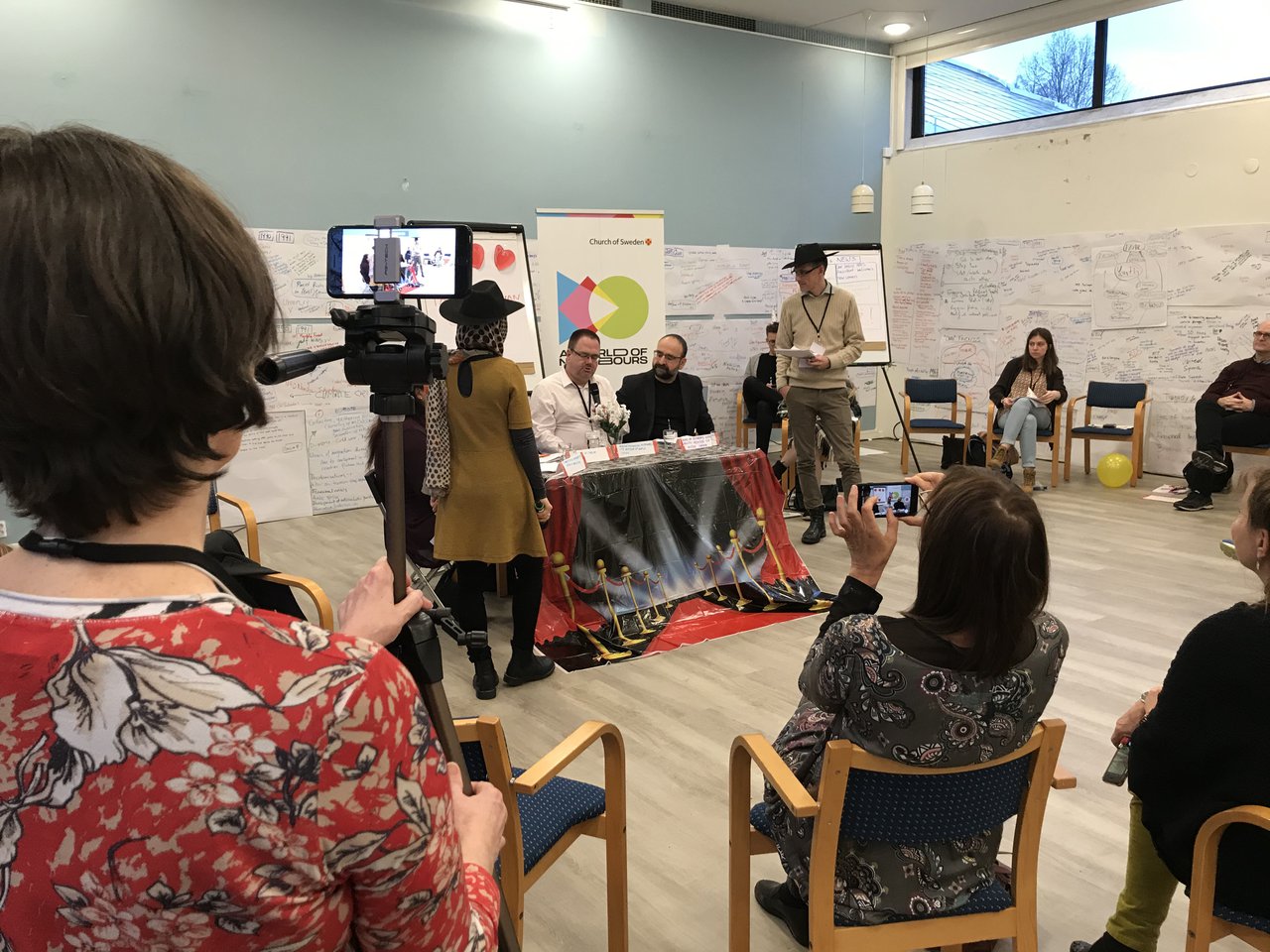
Common ground
The participants of the gathering agreed on a first draft of a set of principles as common ground and action plan for further collaboration towards the goal – a welcoming society, peaceful coexistence and social sustainability in Europe.
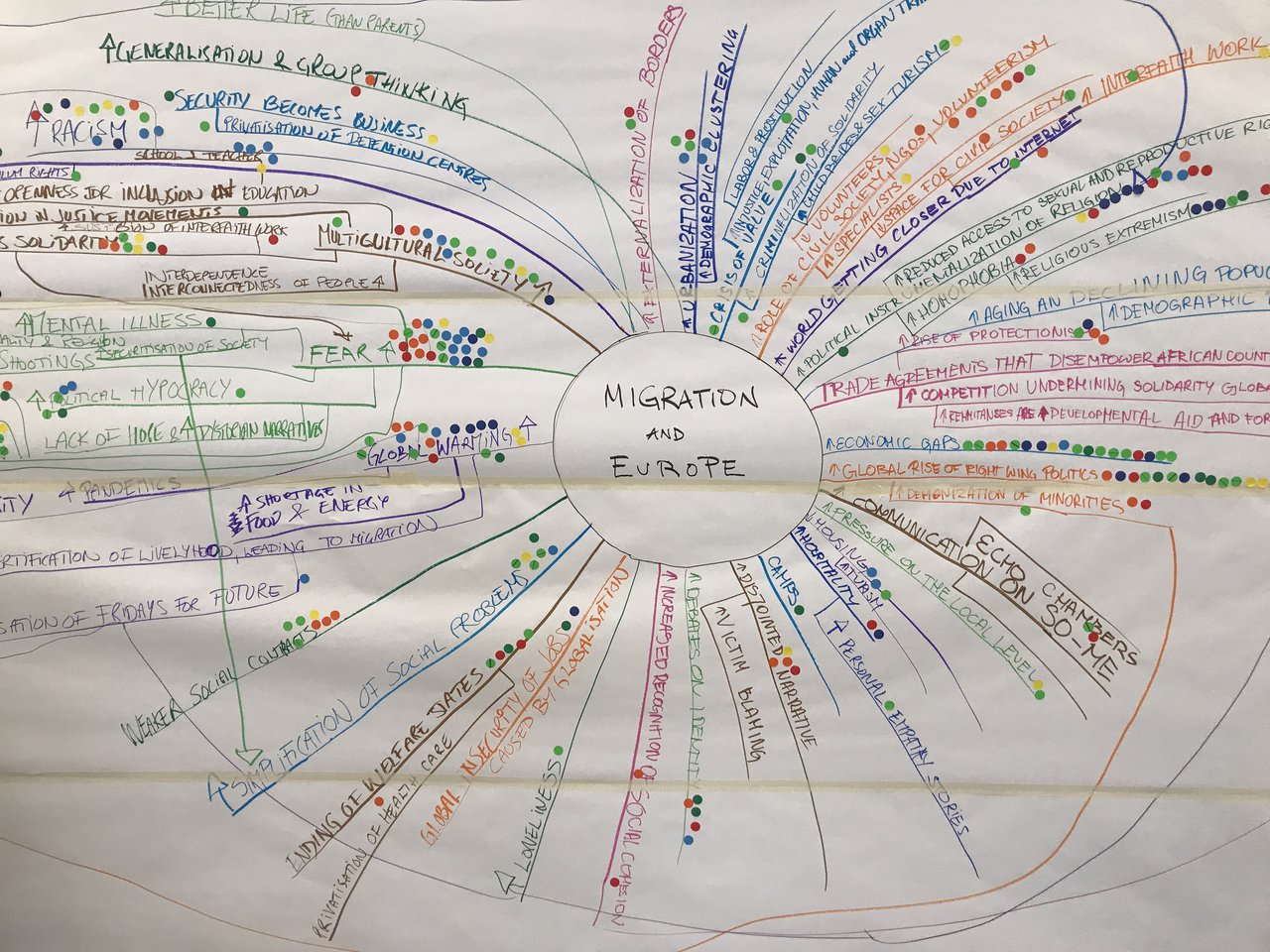
Equality
We create a society which gives us (as groups and individuals equal opportunities to self-development, and decision making. By ensuring this, we create a contract based on trust that allows us to interact with each other.
Human rights
As humans we are equal and responsible for one-another and for our environment. We believe all people should have access to resources and equal opportunities. We believe in freedom of movement. We will strive to create spaces for young people to express themselves and define/determine their future.
Freedom
We believe in freedom from prejudice and excluding ideologies. We believe in freedom for a liveable present and open future.
Justice
In pursuit of justice, we actively: embrace relationships with each other, recognizing the dignity and rights of all work towards ecological, economic, social and spiritual sustainability work for the flourishing of all (including non-human creation) for the common good.
Respect
We are all neighbours! We are open to being mutually inspired and enriched and transformed recognising each other’s vulnerability as a strength, through our different traditions we are committed to the practice of hospitality on a journey from mere coexistence to convivienz.
Solidarity
We wholeheartedly will choose to stand with others.
Dignity
We believe that dignity is inherent to every human being and we commit to promoting this in all spheres.
Realistic Vision
We believe in reducing the gap between public and private actors, and for civil society to be more pragmatic and the public sector to include more humanitarian perspectives and create multiple strategies on multiple levels.
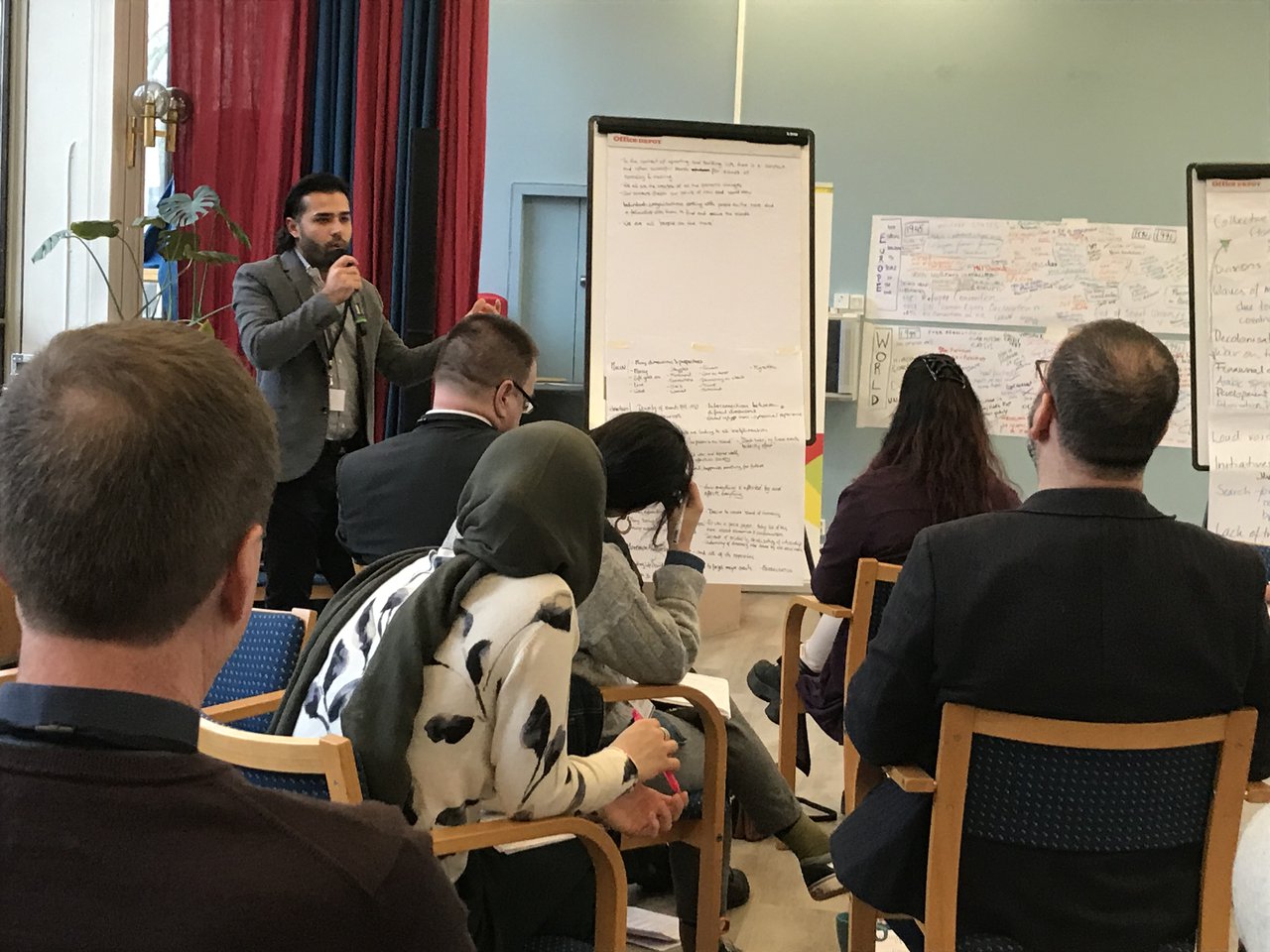
RCH was represented at the meeting by ecumenical officer Balázs Ódor and Parviz Khyber, former client and than colleague of the Refugee Ministry of RCH and its implementing partner, the Kalunba Non-Profit organisation. Parviz Khyber and his family have integrated well into Hungary since immigrating from Afghanistan, so that for the Khyber family, Hungary has become home. “I have a very positive experience here with the people, the country,” said earlier Parviz, who is also fluent in Hungarian. Him representing RCH at the stakeholders’ meeting in Malmö was a strong sign that successful integration and a sense of living together as “neighbours” has been possible in Hungary.
Ecumenical Office via www.aworldofneighbours.com
Photos: Balázs Ódor